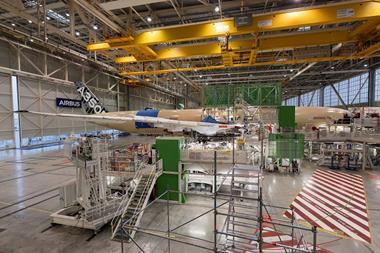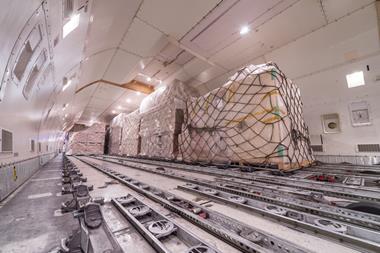Emirates SkyCargo has signed a memorandum of understanding with Luxembourg-based Cargolux for a strategic operational partnership.
Described as the first of its kind between a mainline airline and a specialised freighter operator, it will allow the two carriers to cooperate and offer their complementary strengths and shared values.
The deal was signed at Air Cargo Europe in Munich.
Emirates will use Cargolux’s Boeing 747F capacity, complementing its own fleet of 777Fs, while giving it continued access to planes with noseloading capacity or the ability to carry heavylift cargo.
Cargolux will have access to Emirates SkyCargo’s belly-hold capacity to over 150 destinations in 83 countries.
Both carriers will further develop block space and interline agreements for on each other’s networks, offering customers enhanced global reach.
Emirates SkyCargo will start freighter operations to Luxembourg from June 2017 and both carriers’ cargo will be handled at the same facility there. Cargolux will also increase the frequency of freighters to Dubai World Central (DWC) from its current three times a week service. Cargolux freighters operating to Dubai World Central will be handled by Emirates SkyCargo.
Both operators have EU Good Distribution Practices (GDP) certification for medical products.
Emirates divisional senior vice president, cargo, Nabil Sultan, commented: “Emirates SkyCargo is committed to being the leading player in the global air cargo industry providing our customers with the highest standards of products and services. Cooperating with Cargolux who is a leading, established and specialised air cargo operator with strengths that are complementary to our own will allow us to present a broader enriched product offering and add value to our customers.”
Cargolux president and chief executive Richard Forson, added: “Cargolux is delighted to be working with Emirates SkyCargo on this agreement. As one of the leading carriers worldwide, Emirates SkyCargo is an important player in the industry as Cargolux is, and our supplementary capabilities allow us to develop service offerings that both of us could not provide on our own.”










